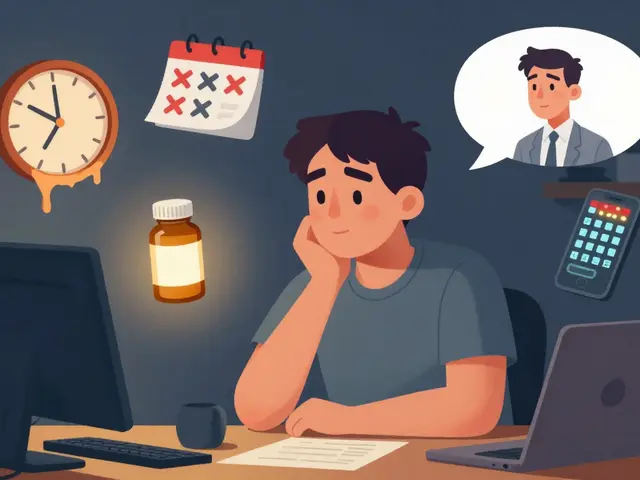Abacavir: What You Need to Know
Abacavir is an antiretroviral medicine used to treat HIV. It belongs to the NRTI class and works by blocking the virus from copying its genetic material. Doctors often prescribe abacavir as part of a combination regimen, and you’ll also find it combined with other drugs in fixed-dose pills such as Epzicom (abacavir/lamivudine) and Triumeq (abacavir/dolutegravir/lamivudine).
Before you start abacavir, you should be tested for the HLA-B*5701 gene. If you carry this gene, you have a high risk of a serious hypersensitivity reaction. That reaction can cause fever, rash, stomach upset, and breathing problems. If any of those symptoms show up after starting abacavir, stop the drug immediately and tell your healthcare provider. Never restart abacavir after a suspected hypersensitivity reaction — doing so can be dangerous.
Common side effects are usually mild. People report headaches, nausea, tiredness, and trouble sleeping. Less commonly, abacavir can affect the liver or cause a change in blood counts. Your provider will check blood tests periodically to watch for these problems and adjust treatment if needed.
Abacavir interacts with some medicines, but its interaction list is shorter than many other HIV drugs. Still, tell your clinician about all prescription drugs, vitamins, and herbal supplements you take. Some combination pills that include abacavir simplify dosing and cut the number of pills you must take, which helps keep adherence high.
Dose options for adults commonly include 600 mg once daily or 300 mg twice daily, but your doctor will pick the exact dose and schedule that suit you. If you miss a dose, take it as soon as you remember unless it’s almost time for the next dose. Don’t double up to make up for a missed dose.
Practical tips that help day to day: carry a list of your medications and your HLA-B*5701 test result; keep medicine in its original container away from heat and moisture; set a phone alarm or use a pillbox so you don’t miss doses. If you’re planning pregnancy or breastfeeding, discuss abacavir with your clinician — many providers use it safely in pregnancy, but decisions should be personalized.
If you have questions about side effects, interactions, or switching to a different HIV regimen, ask your healthcare team. Abacavir can be a reliable part of HIV care when used correctly and with the right safety checks.
Some research has hinted at a small increased risk of heart attack in people who already have cardiovascular disease. That doesn’t mean everyone on abacavir will have a problem, but if you have high blood pressure, high cholesterol, or a history of heart disease, bring this up before starting therapy. Generic abacavir is widely available and usually cuts costs. If price is a worry, ask your clinic about assistance programs or a pharmacist about lower-cost options.
Keep records of lab tests and appointments, and report any new symptoms right away. A change can mean a difference in safety and how well treatment works. Your care team is the best source for advice.





